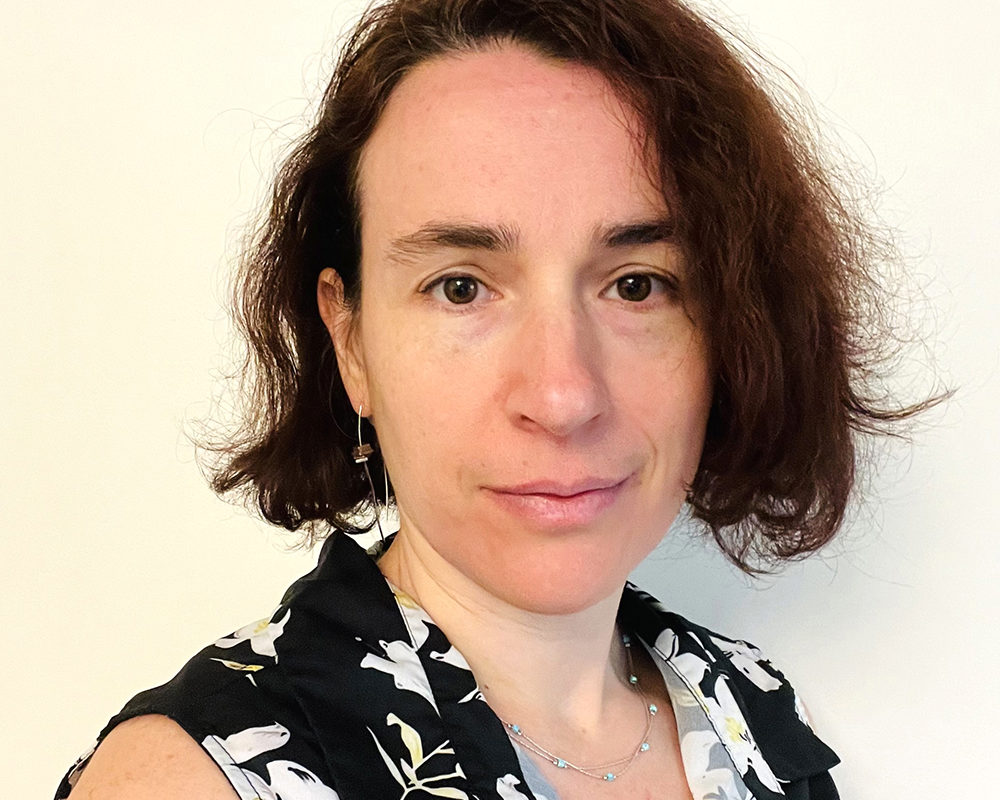
When USC Stem Cell scientist Yulia Shwartz experiences the thrill of scientific discovery, she often thinks of a line that Charles Darwin wrote in The Voyage of the Beagle: “every traveller must remember the glowing sense of happiness, from the simple consciousness of breathing in a foreign clime, where the civilized man has seldom or never trod.”
Shwartz’s own scientific voyage to becoming a USC assistant professor of stem cell biology and regenerative medicine began with her fascination with the medical careers of her parents and paternal grandparents. When she was six years old, her father, who is a cardiologist, and mother, who is a nurse, moved their family from Russia to Israel. They were among 1.6 million Soviet Jews who emigrated to Israel in the 1990s, many of whom were doctors, engineers, and other highly educated professionals.
After completing high school in Israel, Shwartz dedicated two years to compulsory military service as a Navy medic, and then majored in medical sciences at Hebrew University in Jerusalem.
“I had this amazing course in developmental biology, which blew my mind,” she said. “It was the science experiments, the type of questions and the creative way people approached them. And the cherry on top was that science comes in pretty pictures. I literally fell in love. I was completely hooked.”
Inspired to pursue a career in scientific research, she earned her master’s and PhD degrees at the Weizmann Institute of Science, where she studied skeletal development in Elazar Zelzer’s lab. During this time, she got interested in how different tissues interact to regulate development and stem cells’ behavior.
During her PhD, she also married a fellow scientist and became a mother.
“That taught me a lot about balance in life, and I think it made me a better scientist,” she said. “It also taught me how to focus and how to manage my time properly, which in the end, actually increases productivity.”
For her postdoctoral training, she switched from studying development to investigating adult stem cells in the skin in Ya-Chieh Hsu’s lab at Harvard University.
“This was the second time I fell in love,” said Shwartz. “The skin is truly an amazing and beautiful organ. It protects us from different external insults, and facilitates thermoregulation and many different sensations.”
The skin is also an organism’s largest interface with the outside world, making it an ideal organ for studying how temperature, humidity, and environmental cues influence the behavior and function of stem cells and other cell types.
During her postdoc, Shwartz explored how sympathetic nerves, which are the nerves involved in the body’s “fight-or-flight” response, can regulate stem cells. She showed that prolonged cold temperatures stimulate sympathetic nerves to not only contract the tiny muscle that causes goosebumps, but also activate hair follicle stem cells to grow more hair for extra warmth.
As a traveller newly arrived to the foreign clime of USC, she’s looking forward to expanding her studies of how environmental factors affect stem cell biology, with the goal of discovering new approaches for improving healing and counteracting the effects of aging.
“There are two main things that I’m very excited about at USC,” she said. “The first one is, of course, the science. The stem cell department is an amazing collective of super smart, collaborative, interdisciplinary people who are working together in order to answer some of the most exciting scientific questions. The other reason why I wanted to join this department is the amazing students at USC, because mentorship is one of the things that really brings me joy and pride. This is where I want to put a lot of effort in order to make sure that all my mentees get to where they want to be.”
